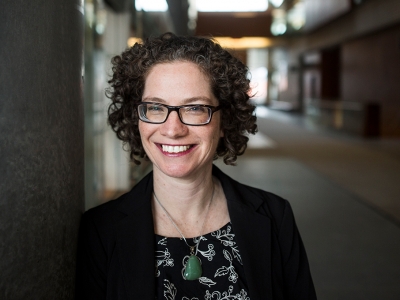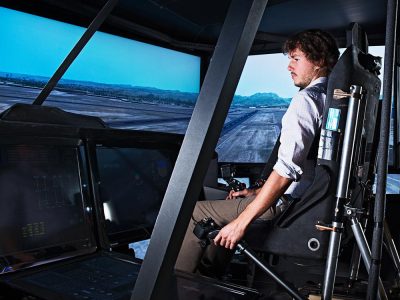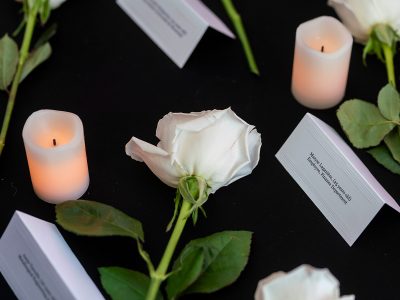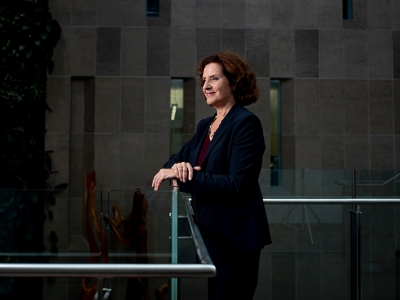By Elizabeth Kane
At this year’s spring convocation, more than 6,664 Carleton students from the class of 2022 are receiving degrees that recognize their resiliency and commitment to education during a uniquely challenging time. Carleton awards numerous medals to honour the dedication of Ravens who have excelled in their studies.
On June 3, 2022, Carleton’s Senate met to confer the degrees of the graduating class and announced this year’s winners, including students recognized with the Governor General’s, Chancellor’s and President’s medals.
Governor General Gold Medallist Explores Machine Learning and Medical Therapies
The winner of the Governor General Gold Medal Kevin Dick is graduating with his PhD in Biomedical Engineering. The medal is awarded to the graduating PhD student at the head of the graduating class.
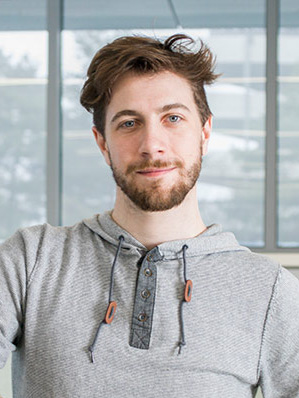
Kevin Dick, photo by Chris Roussakis
His doctoral research aimed to apply machine learning to better understand which pairs of proteins physically interact. This information could help scientists improve the design of medical therapies. Dick has led studies related to Zika Virus, Malaria-causing parasites, allergens, and on the SARS-CoV-2 virus.
“I have always held a special fascination for life and the complexities of molecular systems,” he says.
When deciding which university to complete his PhD at, Dick was drawn to the friendly atmosphere and research strength of Carleton — where his work was supervised by Prof. James Green.
A highlight of his time was leading a machine learning class. It was at a pre-vaccine stage of the pandemic, and he provided students with an opportunity to create state-of-the-art methods to determine which drugs could be used to treat COVID-19. The students were able to share co-authorship on a journal publication and Dick was nominated for the Outstanding Teaching Assistant award that year.
Dick plans to continue his work as a data scientist with an eventual goal of joining academia. As someone who has mentored many, he encourages students to get actively involved and help drive their own success.
“Challenge the status quo to find ways to excel beyond what is expected,” he says. “Carleton University is known for training change-makers; make your time here truly count.”
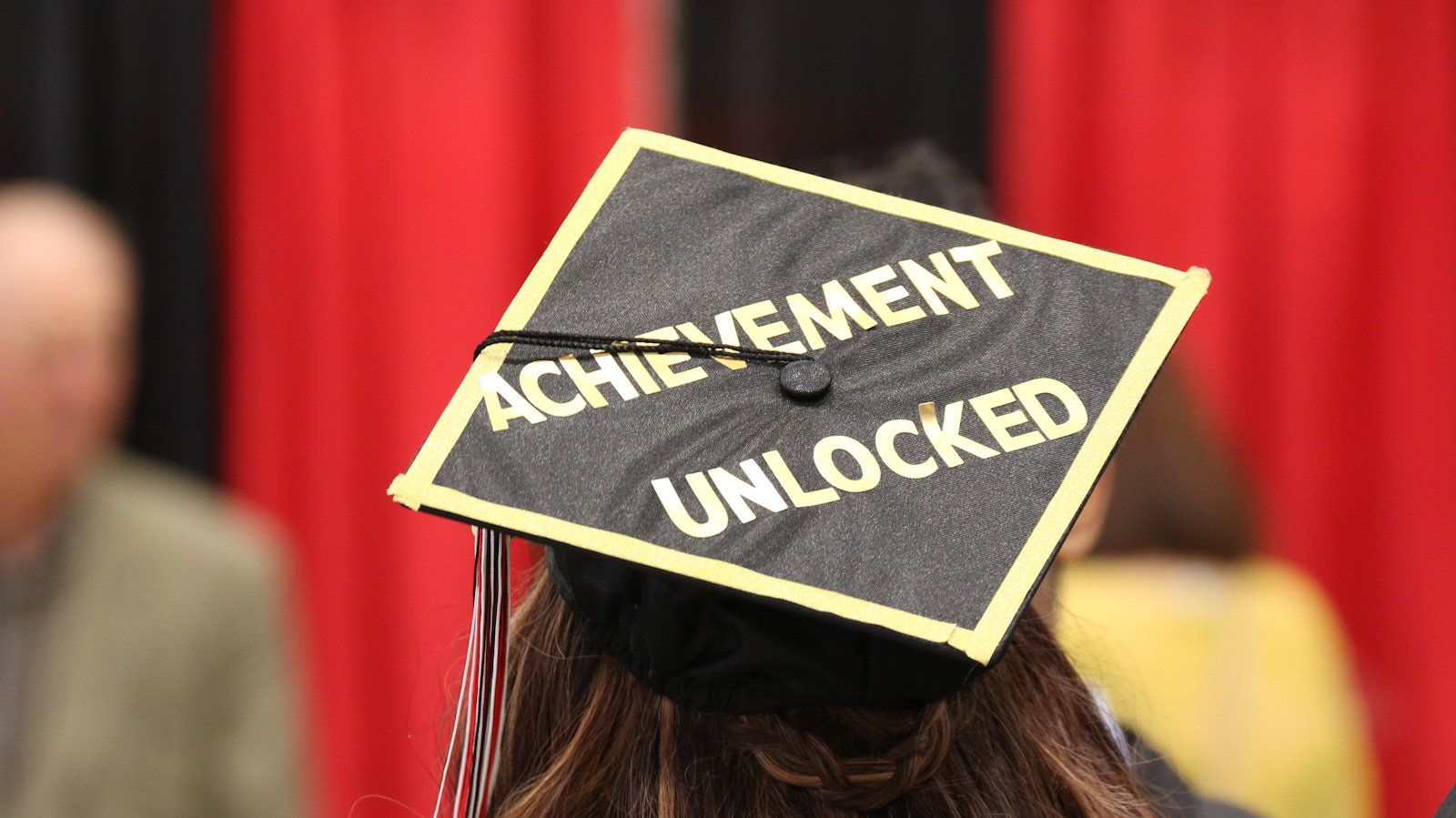
Neuroscience Students Take Governor General Silver Medals
Samra Brkic, one of the winners of the Governor General’s silver medal — awarded to two undergraduate students at the head of the graduating class, is graduating with a Bachelor of Science (Honours) in Neuroscience and Mental Health, with a minor in Biology.
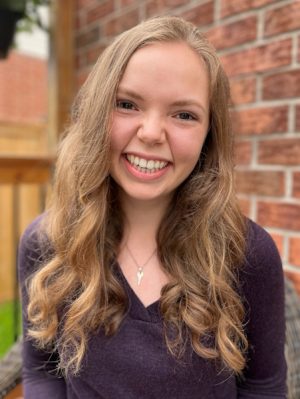
Samra Brkic
Brkic had always enjoyed the sciences but was interested in pursuing studies that blended in the human experience. A direction that eventually led her to pursuing neuroscience.
“It offered that human element I was looking for and sounded really interesting” says Brkic.
The program enabled her to expand her knowledge on neural function and pathology — a relevant subject in a world where so many are experiencing mental health issues.
As Brkic prepares to begin her Doctor of Optometry program this fall at the University of Waterloo, she encourages students who are just beginning their university journey to surround themselves with supportive friends.
“It’s so important to find your group of people that support you and make the mundane tasks enjoyable,” she says, noting there many stressful and challenging moments during the university years. “If you have the right group of friends, those moments can end up being something you laugh about and help each other through.
“To me, in the good times and the bad times it was the people that made everything worth it.”
Fellow Governor General silver medalist and Neuroscience student Zachary Silver had initially enrolled in Carleton’s Bachelor of Health Sciences but decided to switch after speaking with friends in the neuroscience program.
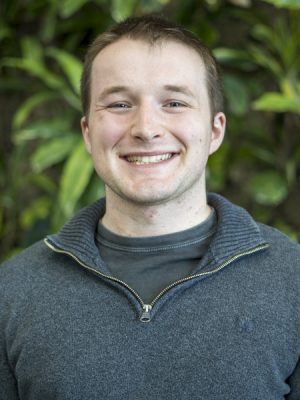
Zachary Silver
“The coolest part of studying the brain to me is the sheer complexity of it all,” he says. “All science is complex, but I think in neuroscience there’s a seemingly unlimited number of variables for you to consider. It presents a huge challenge that is really appealing to me.”
Research opportunities at Carleton were a major highlight for Silver. He worked in the lab of Prof. Alfonso Abizaid for three years studying cortisol regulation and metabolism, as well as the effects of gestational diabetes on people later in life. He also worked with Prof. Melissa Chee, as well as Lab Coordinators Alexander Edwards and Lindsay Hyland in the neuroscience department.
Looking forward, Silver plans to begin a master’s degree in biochemistry at the University of Ottawa.
Reflecting on his undergrad experience, Silver notes the importance of getting involved.
“You get out what you put in,” he says. “I think that there’s tons of opportunity for you at university, and at Carleton in particular, but you have to take the initiative to take that opportunity.”
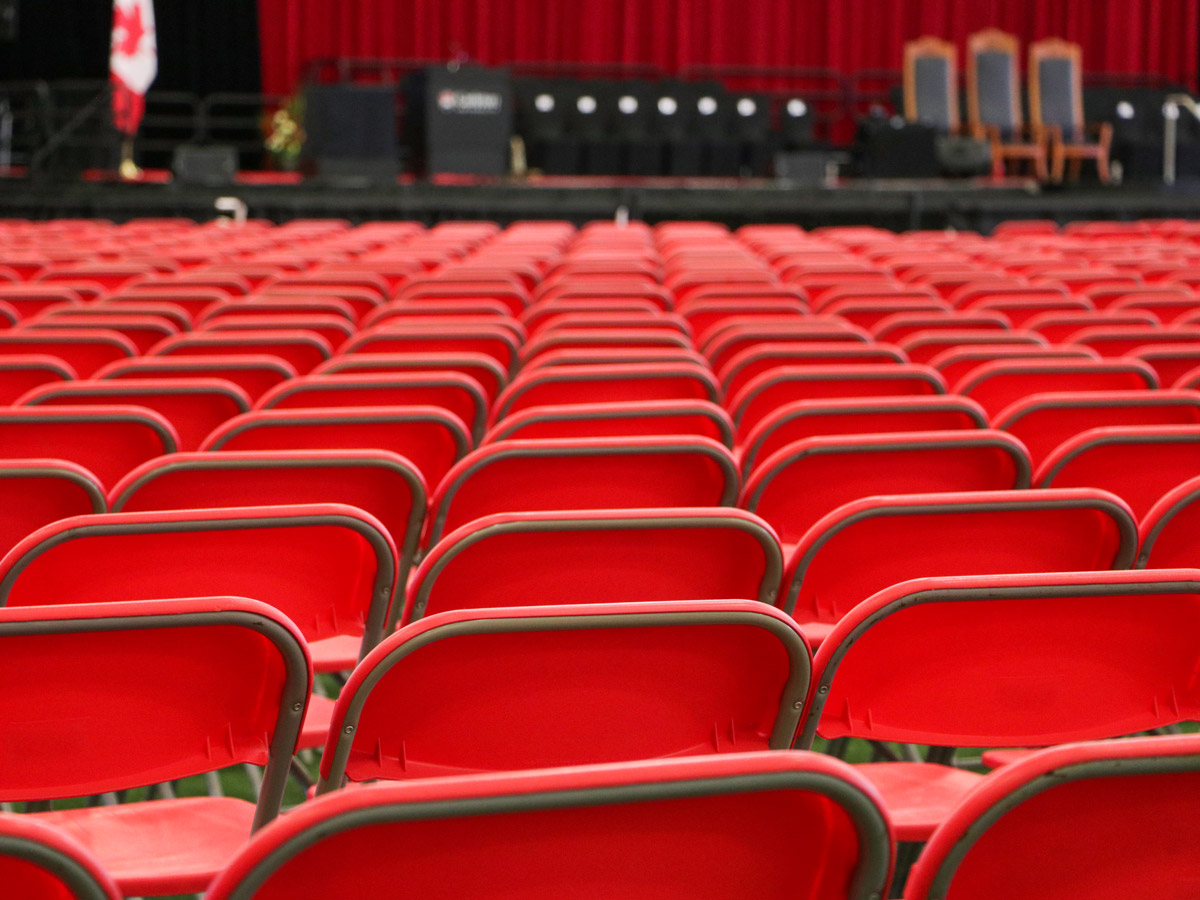
Six Students Win Chancellor’s Medals
This year, six students have been honoured with the Chancellor’s Medal. It is awarded to graduating undergraduate students of outstanding academic achievement.
Bachelor of Cognitive Science (Honours) graduate Justine Kennis knew she wanted to study the mind but wanted to explore it through various disciplines. When looking into post-secondary options, she heard about cognitive science at Carleton.
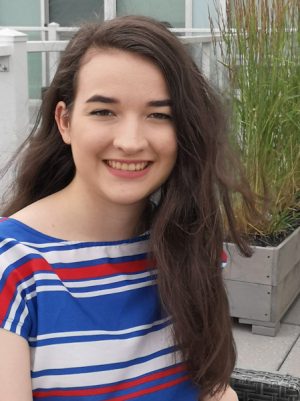
Justine Kennis
“Once I found out about it, it ticked all my boxes,” she says. “It is interdisciplinary at its core.”
A highlight of her time at Carleton was taking part in research on how positive emotions effect risk-taking with Instructor Nadiya Slobodenyuk. It gave her an opportunity grow her understanding of the research process — along with working through its challenges.
Currently, Kennis is working as a Consultative Engagement Analyst with Statistics Canada, with an eye to potentially becoming a UX (User Experience) researcher, building on her co-ops with the federal government.
For students who may benefit from accommodations, Kennis draws on her experience and strongly recommends reaching out the Paul Menton Centre.
“University can definitely be challenging, and you should not have to go through it without the right support for you,” she says, noting that people may downplay their needs or think their grades don’t warrant the support. “Which is a shame, since they might not be aware of what they can do with even the smallest accommodations.”
Kennis also stresses the importance of having an open mind about future pathways in the early years of study.
“You won’t know if something is for you until you’ve tried it,” says Kennis. “Enjoy your classes, and then after one to two years, you can make more educated choices about what you want to do after your degree.”
Jayson Yung, graduating with a Bachelor of Arts (Honours) in Psychology, has always been fascinated with the interaction between the human mind and the body. When he was determining where he wanted to attend university, he took time to speak to current and former Carleton students to get an understanding of the program.
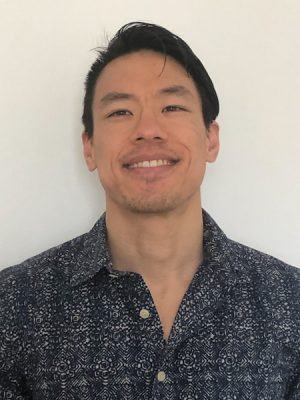
Jayson Yung
“They mentioned there was a very welcoming environment at Carleton,” says Yung. “Through these conversations, I could hear how enriching it was to learn through this program.”
During his studies, Yung took part in the FASS Undergraduate Summer Research Internship project with his supervisor Prof. Nassim Tabri, which allowed him to expand his research experience. Yung credits his previous work with Profs. Katie Gunnell and Rachel Burns with providing him the academic background needed to be selected for the internship.
Yung’s future plans include pursuing further education at St. Paul University, as he works towards becoming a psychotherapist.
For current and future students, Yung notes the benefits of time management and engaging with faculty members during their studies, as well as the importance of making space in hectic schedules for themselves.
“Some people may be too focused on the academics and might not spend time to relax,” says Yung. “Self-care is very important.”
Madeline Wadlow, who is graduating with a Bachelor of Arts (Honours) in Psychology, transferred to Carleton after completing her first year at Bishop’s University.

Madeline Wadlow
“One of the big draws was the amount of courses offered in all the various disciplines of psychology,” says Wadlow. “There were a few courses offered in environmental psychology, which is my primary area of interest.”
Wadlow particularly enjoyed working on her thesis, which examined people’s relationship to nature to see how those measures related to environmental behaviors. Her work was supervised by Prof. John Zelenski, director of the Happiness Laboratory.
“It was a really rewarding process to conduct my own research and ask some new questions that hadn’t been asked before,” says Wadlow.
She also took part in extracurricular clubs including the Parks Canada Outdoor Club, and the Carleton Climbing Club.
While she looks forward to completing a master’s in environmental psychology in the future, Wadlow intends to take a few years before returning to academia.
Wadlow’s advice for students is to ensure that they take care of themselves while pursuing their post-secondary education.
“Aim for balance,” says Wadlow. “Joining clubs and having that social time refuels you and lets you do your best in school.”
When she arrived at Carleton, Bachelor of Computer Science graduate Yangrui Zhu had already completed a business degree in China.
“I was initially worried because I was in my late 20s when I came here,” she says. “It is not very common in China for someone of my age to go back to university for another undergraduate degree.”
Soon, however, she met students from all walks of life — from a mom who would take her children to a tutorial, to a classmate who was also a retiree.
“It is so encouraging and inspiring to study with people from all different kinds of backgrounds.”
While there were limited opportunities during the pandemic, interacting with peers — such as discussing problems with friends and classmates on campus — were some of Zhu’s favorite experiences at Carleton.
Zhu was offered a position in the company where she completed her co-op and is now working as a software developer.
For students interested in doing well, Zhu notes a bit of preparation ahead of time can make a significant impact.
“One thing that really helped with my studying was preparing lessons before class,” she says. “Go through the course materials, do the reading and try the coding examples.”
Bachelor of Science (Honours) graduate Erica O’Neill chose Carleton after visiting the campus following a family relocation to the capital region.
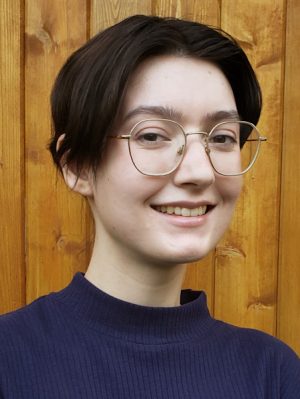
Erica O’Neill
“I really liked the Carleton campus,” says O’Neill. “It was very scenic, peaceful … I could see myself studying by the river.”
O’Neill decided to pursue biology as it presented interesting concepts for her to explore.
“I liked learning about animals, life on earth and evolution,” she says. “So much of it is a little logical puzzle.”
Thanks to NSERC-funded positions, during her time at Carleton O’Neill was able to work on biology research projects with Prof. Heath MacMillan and Prof. Tom Sherratt.
“Both of them were fantastic to work with,” she says, noting that professors she met during her studies were very motivated to help students get involved in research. She encourages new students to not be intimidated to engage with their professors and teaching assistants.
“Talk to your professors. In first year, I was still pretty scared to talk to them,” she says, noting it wasn’t until around her third year that her perspective started shifting. “I have found at every instance that professors are really excited to talk about their work.”
O’Neill will be taking the analytical skills she acquired during her undergraduate studies to her upcoming Master of Statistics at Carleton, focusing on combining biology and statistics.
Joyce Theresa Bacic, who is graduating with a Bachelor of Computer Science (Honours) has also been recognized with the Chancellor’s Medal.
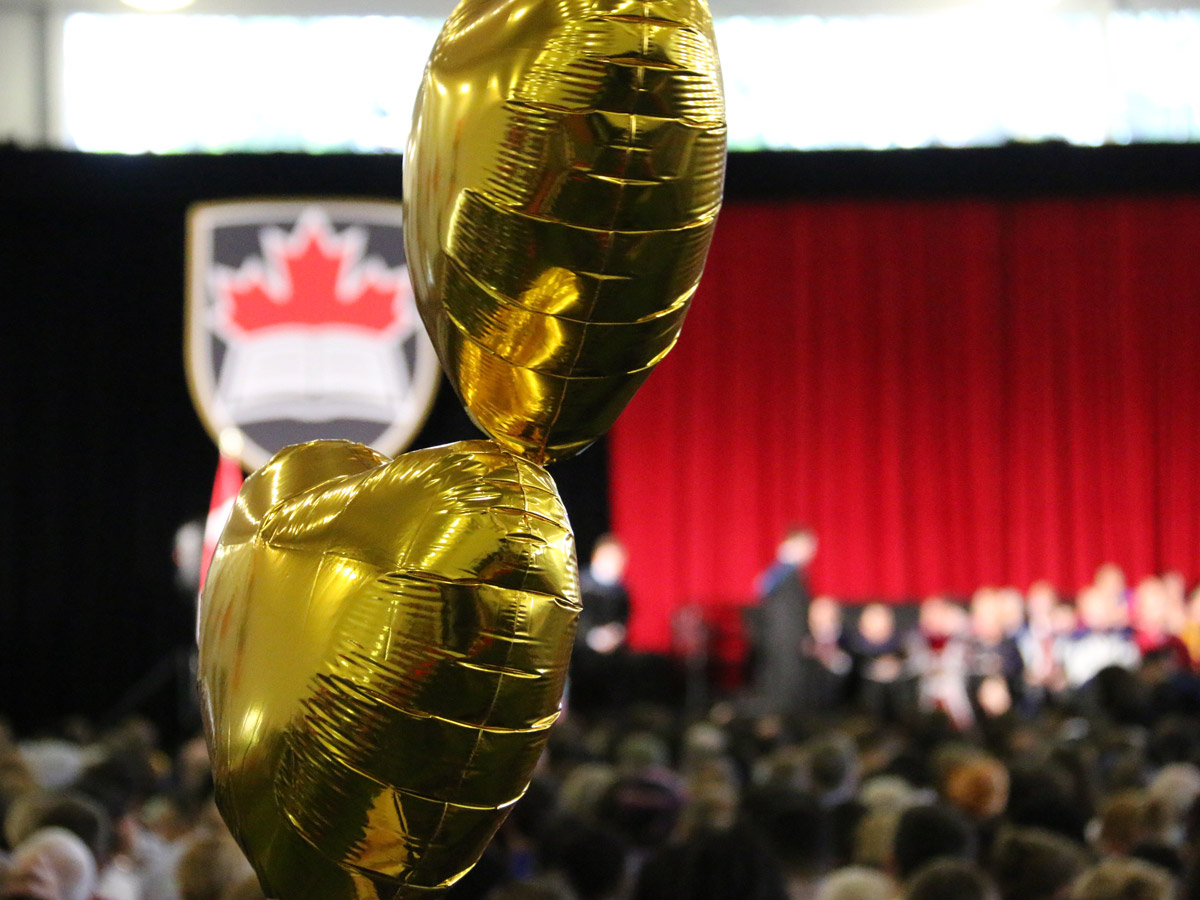
President’s Medal Winner Finds His Academic Fit
The President’s Medal is awarded to the student with the highest standing in a general degree program of studies.
This spring’s winner Josh Guarnieri is graduating with a Bachelor of Mathematics and Statistics, though he had initially enrolled in astrophysics, going on to try computer science and business before discovering his enjoyment of statistics in a first-year course.
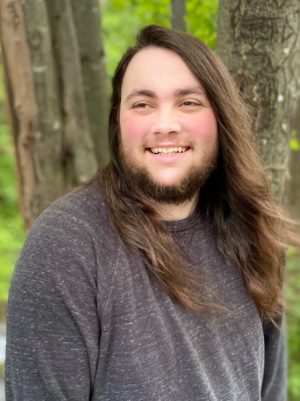
Josh Guarnieri
Pursuing his degree online for more than a year and a half due to the pandemic, one of the highlights of his university experience was returning to campus.
“It was nice be able to see professors again, see my classmates again,” he says. “And being a TA, it was nice to be able to teach in front of people again and see when students were understanding or not understanding concepts.”
“Being able to return to campus and being able to experience that live, raw, more personal form of teaching and learning was very good for me.”
Given his experience finding academic success in the field of statistics, Guarnieri encourages other students to not be afraid of expanding their horizons and switching programs if they are not finding the right fit.
“Take electives and take ‘intro-to’ classes,” he says. “You might actually surprise yourself and find something you are passionate about.”
Thursday, June 16, 2022 in Convocation 2022, Faculty of Arts and Social Sciences, Faculty of Engineering and Design, Faculty of Graduate and Postdoctoral Affairs, Faculty of Science
Share: Twitter, Facebook
